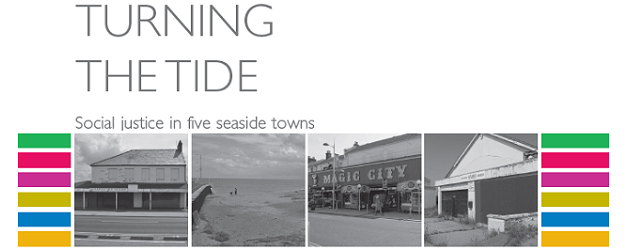The Centre for Social Justice (CSJ) warns that some coastal resorts have never recovered from decades of decline. These areas now have high levels of houses in multiple occupation (HMOs) that provide cheap accommodation for vulnerable people. Efforts to revive towns must be rekindled to prevent people being left behind.
 |
| [relatedPosts title=”Related Posts”] |
|
|
Britain is spending almost £2 billion a year on welfare payments to people of working age who live in once flourishing seaside towns, according to a new report warning that some resorts are suffering severe social breakdown.
Of the 20 neighbourhoods (LSOAs) across the UK with the highest levels of working-age people on out-of-work benefits, seven are in coastal towns that once attracted millions of holiday-makers.
Poverty is attracting poverty, the report from the CSJ warns, as it praises attempts by charities and local councils to turn the tide. But it calls for far greater efforts to recapture the prosperity that was once the hallmark of the seaside resort.
The report, Turning the Tide, examines five of the UK’s seaside towns: Rhyl in North Wales, Margate, Clacton-on-Sea, Great Yarmouth and Blackpool.
It points out that on key measures of poverty, school failure, teenage pregnancy, addiction, fatherlessness and lone parenting, and worklessness–some resorts now have problems as severe as deprived inner-city areas.
Christian Guy, CSJ Director, said:
“Living standards in some of the UK’s best-known coastal towns have declined beyond recognition and locals are now bearing the brunt of severe levels of social breakdown.
“We have found inspiring local people, services and charities working hard to turn things around, but they are struggling to do this alone.
“Some of these areas have been left behind. We must ramp up efforts to revive Britain’s coastal towns, not just for visitors but for the people who live there.”
In one part of Rhyl, two thirds of working-age people are dependent on out-of-work benefits and, according to a recent Ofsted report, coastal towns are among the most educationally deprived in the whole country. Some 41 per cent of adults in Clacton have no qualifications, almost double the national average for England and Wales.
Some local employers interviewed by the CSJ complained of major skills gaps and said they were forced to turn to migrant labour because the inhabitants lacked either the skills or the will to take up the jobs on offer.
The social factors affecting coastal towns run much deeper. Of the 10 wards in England and Wales with the highest rates of teenage pregnancy, four are in seaside towns–the highest rate is in Great Yarmouth. In some neighborhoods (LSOAs), more than 40 per cent of families with dependent children are fatherless. Blackpool local authority has the highest rate of children in care in the whole of England–150 per 10,000 population–far exceeding the English average of 59.
The CSJ heard that some councils in high cost areas take advantage of cheap accommodation in seaside towns and use them to place vulnerable people, such as children in care. CSJ policy director Alex Burghart, who edited the report, said: “This has caused some areas to become dumping grounds for people with complex needs and intensifies pressure on schools, social workers and other services.”
One theme running throughout the five towns was high levels of houses in multiple occupation (HMO). With less demand for hotels and guesthouses, a large share of accommodation has been bought up by private landlords and converted into HMOs–this has attracted people living on very low incomes and reliant on welfare. The CSJ was told that many of Margate’s social problems were related to poor quality and unsuitable housing.
The report adds:
“Whilst each town has its own particular problems, a recurring theme has been that of poverty attracting poverty. As employment has dried up, so house prices have fallen and so less economically active people–such as single-parent families and pensioners–have moved in, seeking cheaper accommodation and living costs.
“Similarly, vulnerable people–such as children in care and ex-offenders–have been moved in as authorities take advantage of low-cost housing as large properties have been chopped into HMOs. Many parts of these towns have become dumping grounds, further depressing the desirability of such areas and so perpetuating the cycle.”
The CSJ recommends a number of measures, including improving skills in seaside towns and considering the devolution of greater powers to local levels so that they can invest in more proactive services and take greater control.
The report ‘Turning the Tide – Social justice in five seaside towns’ is available to download (PDF) here.





